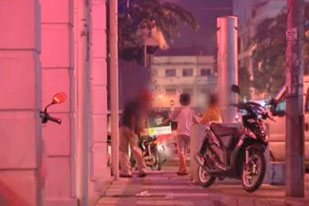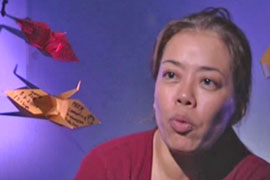Helping Malaysia’s street children
A government centre, set up to keep children off the street, is causing concern.

 |
| About 500 children are left to loiter at night in the back streets of the capital |
Up to 100 million children around the world live on the streets, according to UN figures, easy targets for exploitation and abuse.
Jasbant Singh, reporting for Al Jazeera from Kuala Lumpur, looks at a government centre in Malaysia set up to help street children, but which is causing controversy in the predominantly Muslim country.
About 500 children are left to loiter at night in the back streets minutes away from the bright lights of Kuala Lumpur city centre. Some are as young as six-years old.
Some have no home to go to, others cannot go home because home is where their mothers work as prostitutes.
“I know people say what I do is immoral and not good for children, but if I don’t do this who’s going to feed my child?” asks Anita, one of Kuala Lumpur’s sex workers.
Anita works in the back allies of the suburb of Chow Kit. She is dying of cancer.
| Video link |
She has an 11-year-old son who roams the streets while his mother is at work. At school, his classmates and his teachers picked on him because of his family background and so he does not go to school any more.
Three years ago, he was put in a welfare home, but he ran away. Back to his mother.
Hartini Zainudin, a consultant at the Salam Malaysia Foundation, told Al Jazeera: “These children love their parents, whatever they do and so he wanted to be with his mother.”
Zainudin helps to run a day care centre in Chow Kit, where the boy spends the day with other children who share similar stories – some of their parent’s are drug abusers, others are prostitutes.
The children get only the basics at the centre: some meals and lessons in reading and writing.
Conservatives speak out
 |
|
Hartini Zainudin helps to run a centre |
The centre is supported by Malaysia’s welfare ministry, but it has to fight for its own survival because the problems it seeks to cope with are often taboo subjects in Malaysia.
Dr Siti Mariah, of the Islamic Party of Malaysia, told Al Jazeera she was concerned the government’s support of the centre and its inability to tackle the cause of the problem, was as good as sanctioning prostitution.
“I’m worried about the message it gives to society that since the government is … helping them bring up their children, it’s OK not taking any action on the parents, the mothers,” she said.
While most support the centre’s work, it fits uncomfortably with some segments of Malaysia’s society.
But Zainudin says the centre is necessary to keep the children off the streets.
“If we don’t protect [them, they] will be the fourth generation of sex workers in Chow Kit. This is what we don’t want,” she says.
Street children have been a long-standing problem in Malaysia, but it is looking more and more as though the government is ready to ignore powerful, conservative, Muslim groups in order to deal with it.
